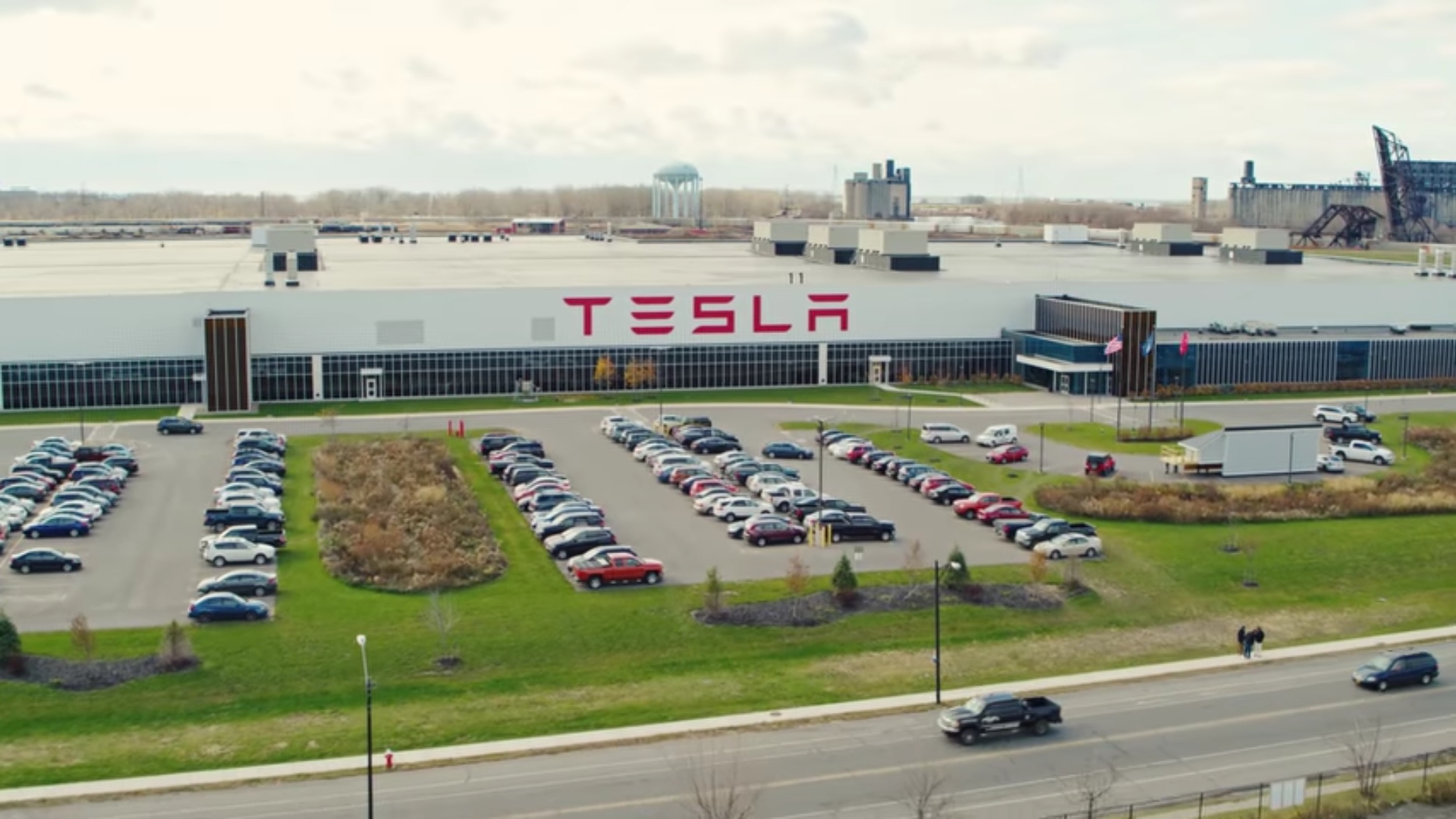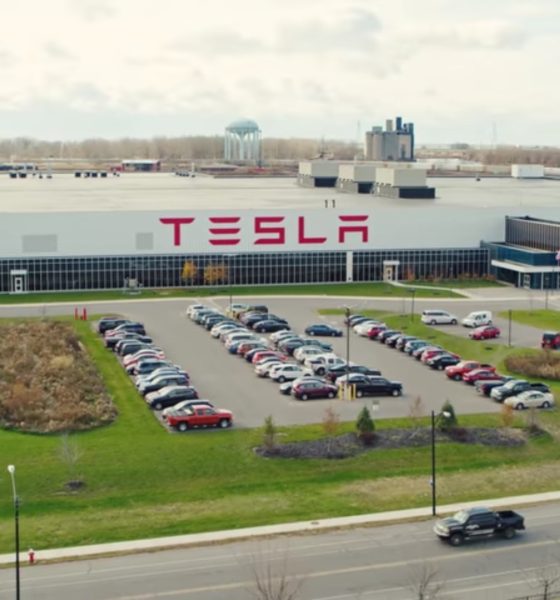Over the course of this year, Tesla’s executives such as CEO Elon Musk and CTO JB Straubel have remarked that the company’s energy business is growing at a rapid rate. Recent reports from Buffalo, NY indicate that this growth will soon be evident in the operations of Tesla’s Gigafactory 2, particularly since the production ramp of the company’s flagship solar product — the Solar Roof tiles — is now going through its initial phases.
Tesla recently invited local news outlets on a guided tour of Gigafactory 2. The tour was the first time reporters were given access to the 1.2-million sq ft facility, and while the media were not allowed to film anything inside the factory itself, Tesla did provide a number of updates about Gigafactory 2 and the Solar Roof tiles. First off, Tesla noted that there are currently around 800 employees (comprised of Tesla and Panasonic workers) working on the site. This number is ahead of the facility’s targets, which require 500 workers to be employed on the site by April 2019. Gigafactory 2 is also running 24/7, with workers alternating 12-hour shifts.
The guided tour was led by director of operations Ryan Nungesser, who is in charge of Gigafactory 2. Nungesser, a former US marine platoon commander, was employed by the electric car and energy company after his tenure at Boston Scientific, where he worked several roles including Director of Production and Director of Materials Management. While Elon Musk himself has reportedly not visited the facility in person, the former marine and the CEO regularly keep in touch through weekly webcast meetings. Addressing the local media personnel on the tour, Nungesser remarked that the facility maintains a collaborative atmosphere, thanks to Tesla’s flat hierarchy.
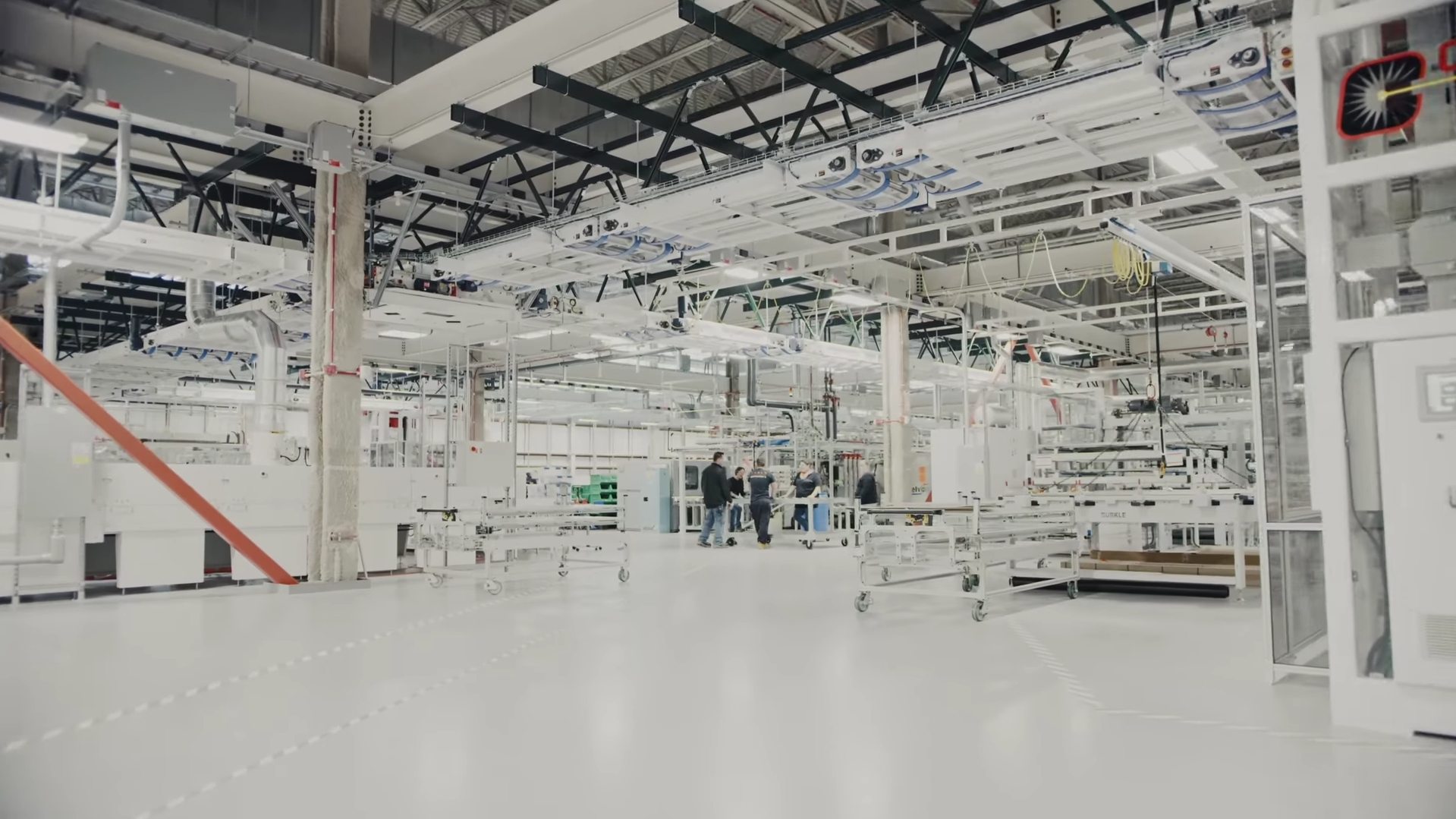
Tesla reportedly had to work through notable bottlenecks in the development, testing, and production of the Solar Roof tiles, which are designed to be incredibly durable and last the lifetime of a house. Dan Miner, a reporter for Buffalo Business First, nevertheless noted that Tesla is confident that it currently has a “repeatable, efficient process” that would allow the company to begin the production of the Solar Roof tiles in greater volumes. Tesla declined to give details on the current output of the facility, though the company has stated that there is a long waiting list of Solar Roof customers that would likely keep the factory busy for years.
As the facility prepares to ramp the production of the Solar Roof tiles, Tesla managers in the facility are expecting the addition of new manufacturing lines. Another hiring ramp is also expected in the near future. Corey Leone, a facilities maintenance technician at Gigafactory 2 who previously worked at a coal-burning plant in Dunkirk, noted to Rochester First News that his experience over the past three years has been quite positive.
“To be able to come here and do green energy, to go from coal to this, it’s been an amazing journey. I’ve been here almost three years. It’s been a fantastic ride,” he said.
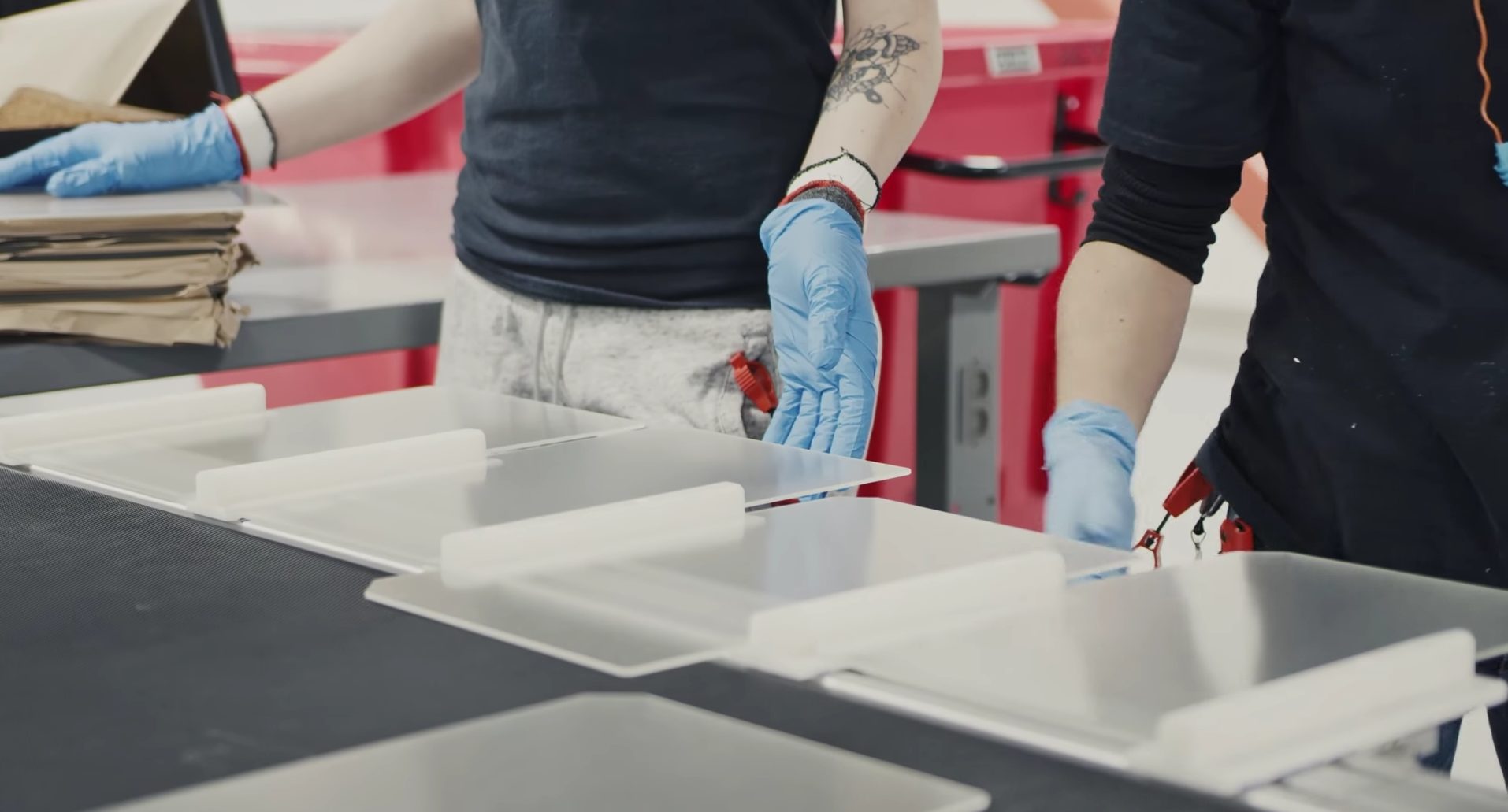
Tesla’s Solar Roof tiles are a pivotal part of the company’s plan to promote “sustainable energy independence.” While the cost of the Solar Roof tiles is far higher than conventional solar panels for now, Tesla noted in its Q2 2017 Update Letter that the shingles, which look like regular roofing materials but are capable of capturing power from the sun, would be far more affordable in the future.
“Adopting solar has historically required a degree of aesthetic compromise, but Solar Roof provides clean energy from a better-looking roof. Furthermore, Solar Roof is more affordable than conventional roofs because in most cases, it ultimately pays for itself by reducing or eliminating a home’s electricity bill,” Tesla noted.
As mentioned by Elon Musk during the third quarter earnings call, the production of the Solar Roof tiles is taking longer to ramp due to the shingles’ long development cycle. Musk did state, though, that the production of the Solar Roof tiles should hit its stride sometime next year.
“We’ll also start going into volume production of the solar tile roof next year. That’s quite a long development cycle for — because anything that’s roof has got to last 30 years. So even if you do accelerate life testing as fast as possible, there’s still a minimum amount of time required to do that. And there’s a lot of engineering that goes into how do you put on the solar tile roof with a — and not be really labor-intensive in doing so. So there’s a lot of engineering not just in the tile but in the way it’s done,” Musk said.

Energy
Tesla Megapack Megafactory in Texas advances with major property sale
Stream Realty Partners announced the sale of Buildings 9 and 10 at the Empire West industrial park, which total 1,655,523 square feet.
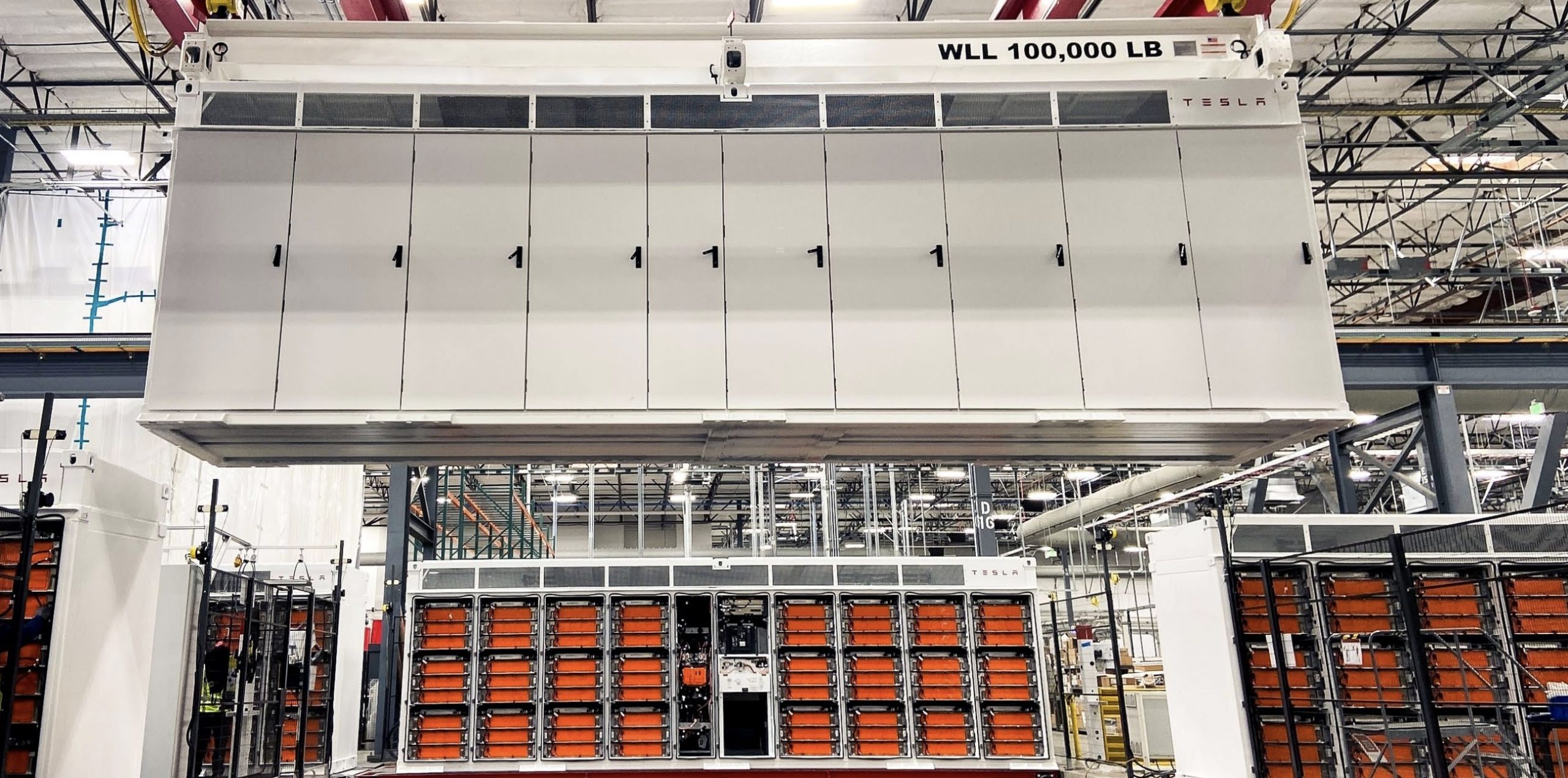
Tesla’s planned Megapack factory in Brookshire, Texas has taken a significant step forward, as two massive industrial buildings fully leased to the company were sold to an institutional investor.
In a press release, Stream Realty Partners announced the sale of Buildings 9 and 10 at the Empire West industrial park, which total 1,655,523 square feet. The properties are 100% leased to Tesla under a long-term agreement and were acquired by BGO on behalf of an institutional investor.
The two facilities, located at 100 Empire Boulevard in Brookshire, Texas, will serve as Tesla’s new Megafactory dedicated to manufacturing Megapack battery systems.
According to local filings previously reported, Tesla plans to invest nearly $200 million into the site. The investment includes approximately $44 million in facility upgrades such as electrical, utility, and HVAC improvements, along with roughly $150 million in manufacturing equipment.
Building 9, spanning roughly 1 million square feet, will function as the primary manufacturing floor where Megapacks are assembled. Building 10, covering approximately 600,000 square feet, will be dedicated to warehousing and logistics operations, supporting storage and distribution of completed battery systems.
Waller County Commissioners have approved a 10-year tax abatement agreement with Tesla, offering up to a 60% property-tax reduction if the company meets hiring and investment targets. Tesla has committed to employing at least 375 people by the end of 2026, increasing to 1,500 by the end of 2028, as noted in an Austin County News Online report.
The Brookshire Megafactory will complement Tesla’s Lathrop Megafactory in California and expand U.S. production capacity for the utility-scale energy storage unit. Megapacks are designed to support grid stabilization and renewable-energy integration, a segment that has become one of Tesla’s fastest-growing businesses.
Energy
Tesla meets Giga New York’s Buffalo job target amid political pressures
Giga New York reported more than 3,460 statewide jobs at the end of 2025, meeting the benchmark tied to its dollar-a-year lease.
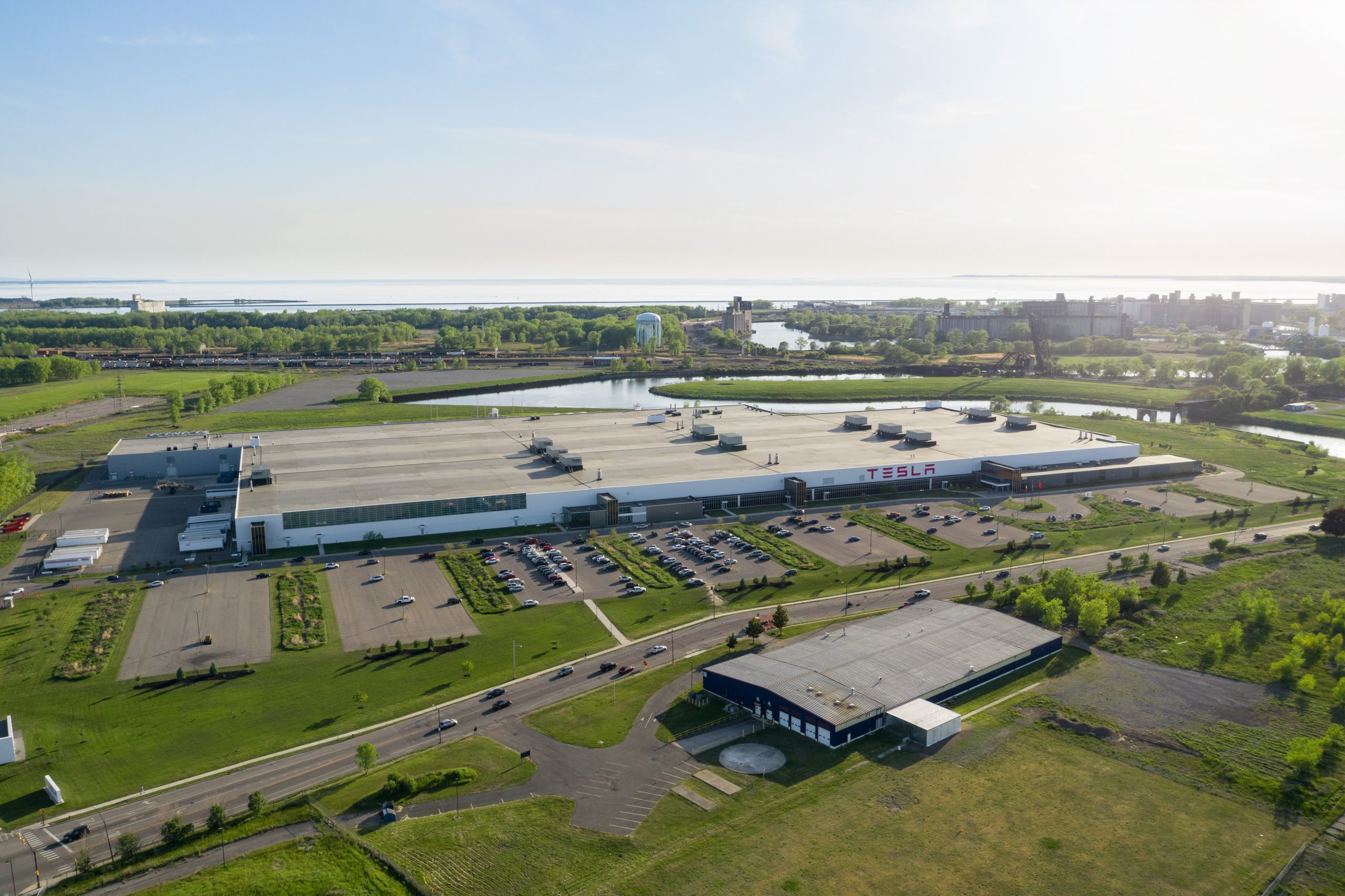
Tesla has surpassed its job commitments at Giga New York in Buffalo, easing pressure from lawmakers who threatened the company with fines, subsidy clawbacks, and dealership license revocations last year.
The company reported more than 3,460 statewide jobs at the end of 2025, meeting the benchmark tied to its dollar-a-year lease at the state-built facility.
As per an employment report reviewed by local media, Tesla employed 2,399 full-time workers at Gigafactory New York and 1,060 additional employees across the state at the end of 2025. Part-time roles pushed the total headcount of Tesla’s New York staff above the 3,460-job target.
The gains stemmed in part from a new Long Island service center, a Buffalo warehouse, and additional showrooms in White Plains and Staten Island. Tesla also said it has invested $350 million in supercomputing infrastructure at the site and has begun manufacturing solar panels.
Empire State Development CEO Hope Knight said the agency was “very happy” with Giga New York’s progress, as noted in a WXXI report. The current lease runs through 2029, and negotiations over updated terms have included potential adjustments to job requirements and future rent payments.
Some lawmakers remain skeptical, however. Assemblymember Pat Burke questioned whether the reported job figures have been fully verified. State Sen. Patricia Fahy has also continued to sponsor legislation that would revoke Tesla’s company-owned dealership licenses in New York. John Kaehny of Reinvent Albany has argued that the project has not delivered the manufacturing impact originally promised as well.
Knight, for her part, maintained that Empire State Development has been making the best of a difficult situation.
“(Empire State Development) has tried to make the best of a very difficult situation. There hasn’t been another use that has come forward that would replace this one, and so to the extent that we’re in this place, the fact that 2,000 families at (Giga New York) are being supported through the activity of this employer. It’s the best that we can have happen,” the CEO noted.
Energy
Tesla launches Cybertruck vehicle-to-grid program in Texas
The initiative was announced by the official Tesla Energy account on social media platform X.
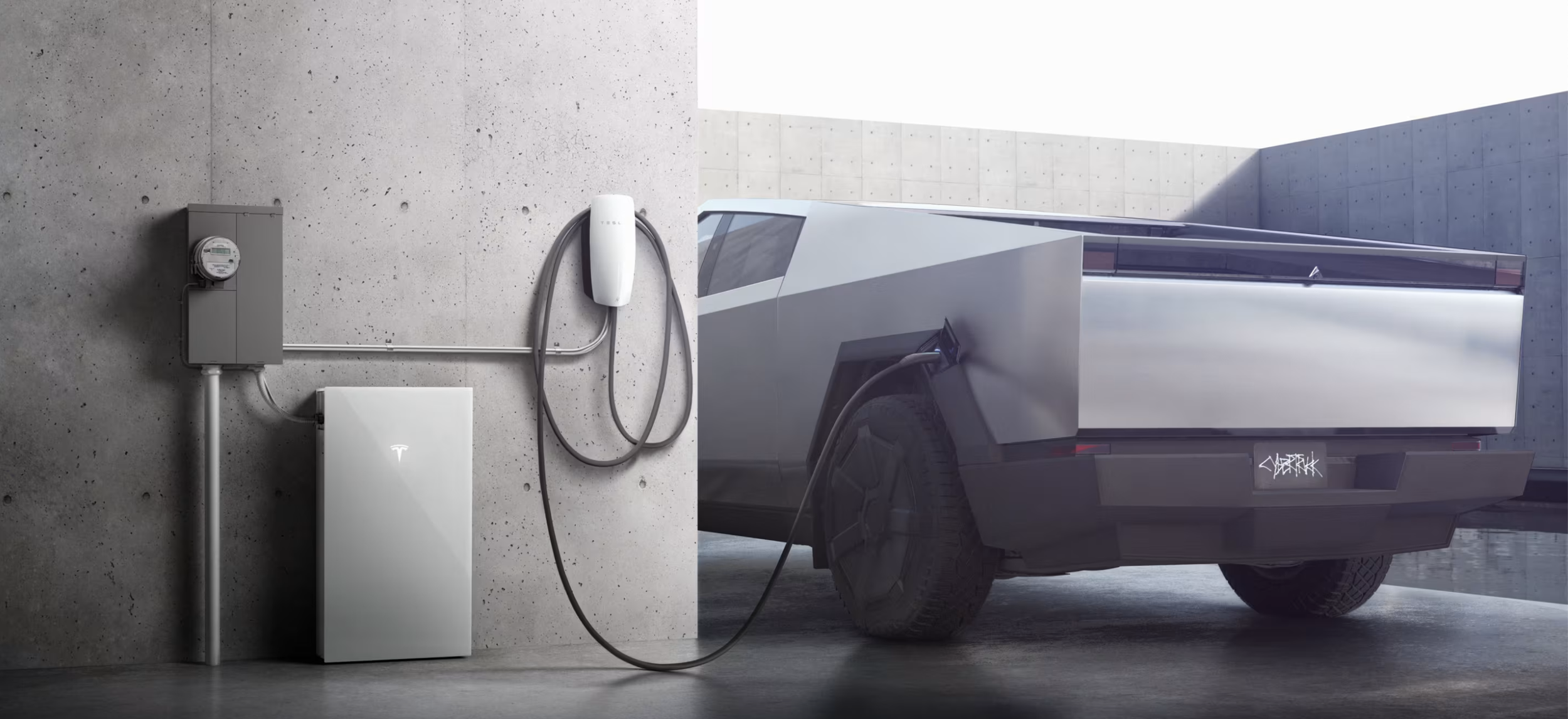
Tesla has launched a vehicle-to-grid (V2G) program in Texas, allowing eligible Cybertruck owners to send energy back to the grid during high-demand events and receive compensation on their utility bills.
The initiative, dubbed Powershare Grid Support, was announced by the official Tesla Energy account on social media platform X.
Texas’ Cybertruck V2G program
In its post on X, Tesla Energy confirmed that vehicle-to-grid functionality is “coming soon,” starting with select Texas markets. Under the new Powershare Grid Support program, owners of the Cybertruck equipped with Powershare home backup hardware can opt in through the Tesla app and participate in short-notice grid stress events.
During these events, the Cybertruck automatically discharges excess energy back to the grid, supporting local utilities such as CenterPoint Energy and Oncor. In return, participants receive compensation in the form of bill credits. Tesla noted that the program is currently invitation-only as part of an early adopter rollout.
The launch builds on the Cybertruck’s existing Powershare capability, which allows the vehicle to provide up to 11.5 kW of power for home backup. Tesla added that the program is expected to expand to California next, with eligibility tied to utilities such as PG&E, SCE, and SDG&E.
Powershare Grid Support
To participate in Texas, Cybertruck owners must live in areas served by CenterPoint Energy or Oncor, have Powershare equipment installed, enroll in the Tesla Electric Drive plan, and opt in through the Tesla app. Once enrolled, vehicles would be able to contribute power during high-demand events, helping stabilize the grid.
Tesla noted that events may occur with little notice, so participants are encouraged to keep their Cybertrucks plugged in when at home and to manage their discharge limits based on personal needs. Compensation varies depending on the electricity plan, similar to how Powerwall owners in some regions have earned substantial credits by participating in Virtual Power Plant (VPP) programs.
